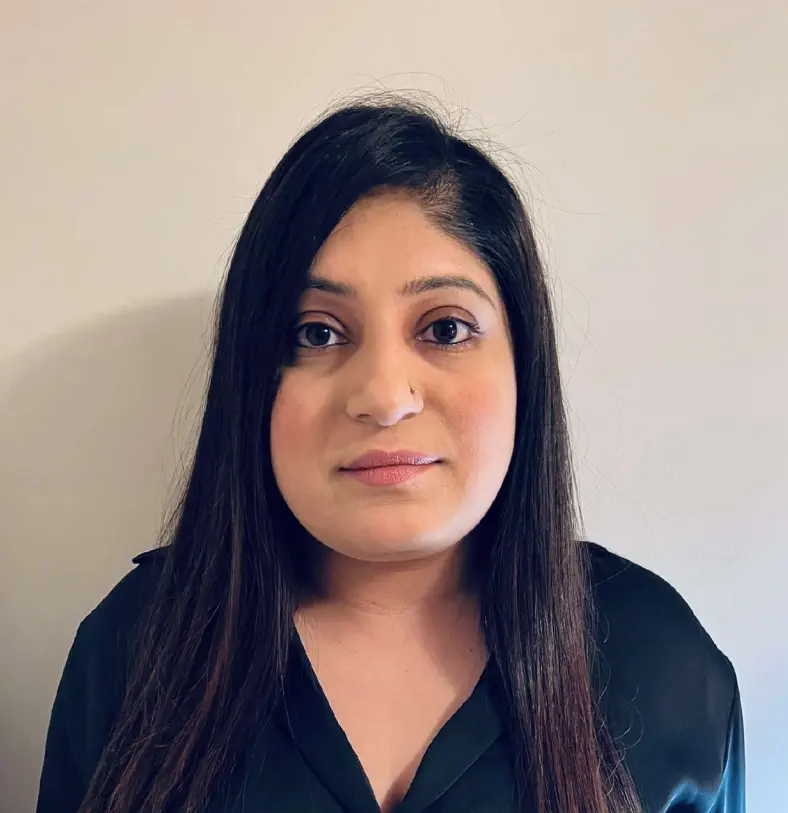We offer medical detox and multiple addiction treatment options in our
luxury treatment centres in Port Hope, Cobourg, and Ottawa.
How To Help A Drug Addict
The mere fact of seeing one's loved one in misery because of addiction is alarming. The recovery process is usually very long and painful, but helping someone at this challenging time may mean everything. Drug addiction does not affect only one individual but also his family and friends, causing a ripple effect of agony and suffering. Knowing how best to support your loved one is essential in taking them through the process of recovery and a healthier, drug-free life. This article is about practical advice and insights on how to help a drug addict effectively.
Key Takeaways
- Understanding Addiction: Recognize addiction as a medical condition affecting the brain and behaviour, requiring empathy and professional treatment.
- Recognizing Drug Misuse: Distinguish drug misuse from abuse to provide appropriate support, noting its harmful consequences.
- Supporting Recovery: Offer empathy, education, treatment encouragement, practical help, and patience throughout the recovery process.
- Helping Friends and Family: Support loved ones by understanding their challenges, encouraging professional help, and maintaining personal boundaries.
- Addressing Homelessness and Addiction: Assist homeless addicts by connecting them to resources and providing practical support, with an integrated approach to housing and addiction recovery.
Addiction understanding is the first step toward adequate support. Addiction is a complex disease with an impact on the brain and behavior, whereby it makes it hard for the victim to stop using drugs even if they are willing to do so. It's essential to come forward to your loved one in a non-judgmental way, showing that addiction is a medical condition requiring treatment. Can help fight the stigma and open doors for effective communication and acceptance of support. Education on the nature of addiction and the challenges of recovery puts you in a better position to provide meaningful and informed support. In fact, your role in this process can be a turning point as you provide emotional and practical support for your loved one on his road to recovery.
What is the Misuse of Drugs
Drug misuse is using substances either in a harmful or unintended manner. This may lead to significant consequences, including severe physical effects of drug misuse, such as changes in behavior, health issues, and deteriorating relationships. Unlike drug abuse, which is usually marked by compulsive use with adverse outcomes, misuse can sometimes be more subtle but equally damaging. In its turn, it makes it possible to seek addiction treatment timely and not allow harm to be done. Knowing the difference between drug misuse and drug abuse may help to resolve this problem more effectively and not leave people alone with it.
Drug misuse can take many forms: taking more than the prescribed dose, taking someone else's prescription, and using legal substances in ways unintended by medical professionals. Examples of misused drugs include:
- Using painkillers to feel “high” rather than for pain relief.
- Getting high on over-the-counter medications such as cough syrups.
- Drinking alcohol with medications that have warnings against alcohol use.
- Sharing medications with others leading to unintended effects.
Avoiding such situations prevents drug abuse from escalating to more severe cases. The key signs include changes in social behavior, neglecting responsibilities, and physical symptoms like unexplained weight loss or frequent illnesses. Once such signs are identified, treatment for addiction can be promptly carried out before the adversities take over, which will, in turn, ensure healthcare provision by consulting health professionals or joining a support group. Providing education to others and educating yourself on the risks and realities of misusing drugs creates an enabling environment that fosters intervention and support for those who struggle with substance issues.
What is the Difference Between Drug Misuse and Drug Abuse
Understanding the misuse and abuse of drugs is imperative in addressing addiction and giving appropriate support. While they may appear similar, there are critical differences between the two that affect how we approach treatment and recovery.
Misuse vs abuse of drugs lies in the intent and frequency of use. Drug misuse occurs typically when people take prescription medications for purposes not intended by the doctor prescribing them, either in higher doses or for non-medical purposes. It could also include inappropriate use of legal substances, which results in harmful health effects.
On the contrary, drug abuse is manifest in compulsive use despite harmful consequences. People addicted to drugs usually give priority to substance use, turn away from commitments and relationships, and end up with severe physical, emotional, and social troubles. Knowing these differences is of prime importance for effective intervention and addiction treatment.

How to Help a Drug Addict Friend
Supporting drug addict friends can be challenging, but it can also be gratifying. Your empathy and loyalty will be a big boost to their recovery. Here are practical ways you can help a friend with drug addiction.
- Open a Dialogue: Approach your friend with empathy and concern. Do not judge them, but show your concern for them.
- Learn More About it: Educate yourself about addiction and its effects. Informed support will be more helpful to your friend.
- Support Their Treatment: Tell your friend about the different treatment options, such as counseling, rehabilitation programs, or joining a support group.
- Offer Practical Help: Help with daily tasks, provide transportation to appointments, or help manage their schedule.
- Set Boundaries: While being supportive, it is essential to keep boundaries drawn to protect yourself.
- Stay Patient: Recovery is a long process. Be patient and keep on supporting your friends, even if they sometimes relapse.
Supporting drug addict friends requires a lot of patience and understanding, constant support. Keeping yourself updated and involved will make a big difference in their journey to recovery.
Can You Be Friends with a Drug Addict?
Yes, you can be friends with a drug addict, and your friendship will mean a lot to them during their darkest hour. Being there for them requires a lot of patience, understanding, and clear boundaries. Educate yourself about treatment options so you can encourage them to seek professional help. Open and honest communication lets them know you really care and are willing to assist someone in need. This will let them know they are not alone and, therefore, encourage their recovery.
Keep a hold of your well-being. Make sure you set boundaries to protect yourself from potential harm while showing support. Know that the recovery process is long, and your friend can have setbacks. Continue supporting and reminding them about treatment options. Friendship can really be supportive and serve as an encouragement in the recovery process. You will be able to make a big difference in the life of the person and help them to sail through the challenges of addiction. Being a strong friend can really change someone's life and help the person get through addiction.
How to Help a Family Member Addicted to Drugs
Helping a drug addicted family member can be very emotional, but your support will be crucial. Start by talking to your loved one with understanding and without being judgmental. Engage him in a compassionate conversation to tell him of your concerns and that you will be ready to support him. Avoid using confrontational language and instead show him that you care for his well-being.
A drug addict family member requires you to learn more about addiction and the various treatment options available. You need to know the signs and symptoms of addiction, probably triggers of relapse, and some coping mechanisms for both the person with an addiction and his family. Encourage your loved one to seek professional help, such as counseling, rehab programs, or support groups. Let him know that you can help him in seeking and reaching these resources, and if needed, accompany them to the appointment.
The process of helping a family member with drug addiction also includes patience and expectations of failure. Recovery is a long and often challenging journey, but your support will definitely make a difference in their ability to win the war against addiction. Set boundaries for your well-being while remaining supportive. Find help for yourself by attending counseling or support groups for families of people with an addiction. You can be a better support for your loved one only after you are looking after your mental health. Remember, helping someone through addiction requires compassion and resilience.

How to Help a Homeless Drug Addict
The issue of homeless drug addiction requires a sensitive, many-pointed approach. The first thing to do is understand the singular challenges these people face, being homeless and drug addiction sufferers at the same time. Challenges generally include a lack of access to health care, stable housing, and social support. Approach the drug addict homeless with empathy, listen to their stories without condemnation. Building trust is critical to help appropriately.
Providing help for homeless drug addicts involves connecting them to local resources such as shelters, rehabilitation centers, and social services. You can refer them to professional treatment and offer your support in their search for these services. You can also assist through practical support, like rides to appointments or basic resources like food and clothing. You can make a critical difference on their path to recovery and stable housing.
What Percentage of the Homeless are Drug Addicts?
Are most homeless drug addicts? Although not all homeless persons are drug addicts, a considerable number of them have substance abuse problems. According to studies, about 26% of the homeless abuse drugs, and about 38% suffer from alcohol dependency. These statistics explain that substance abuse is a significant problem among the homeless. The seriousness of the problems of drug and alcohol abuse among homeless people makes their need for professional help an urgent one.
Since homelessness and addiction are interwoven, solutions are supposed to be integrated in their approach to deal with both at the same time. The healthcare and support systems that people need to get their substance abuse issues under control are not readily available to homeless people. Through the provision of targeted services such as rehabilitation programs and support for mental health, it would be easier to help the homeless with drug addiction. It is necessary to develop integrated approaches that address housing and addiction to be able to enhance the chances of successful recovery and stable housing.

Key Steps To Help A Drug Addict
Drug addiction afflicts family members of drug users as much as it does the drug users themselves. Helping someone with a drug addiction can be challenging, especially if you haven't experienced that struggle yourself. However, there are effective ways to help a drug addict overcome their addiction. The best way to help a drug addict is through a three-step process that requires a great deal of patience, understanding, and effort. By being supportive and informed, you can play a crucial role in their recovery journey.
First Step: Interventions
Most drug addicts won't respond well to threats of abandonment or "If you don't quit" statements made by loved ones. It is possible to stage an intervention without the use of such language. However, you may find that your intervention still fails for several reasons (did you know: there are professional interventionists for this?). Once you pinpoint the causes, it's necessary to correct them before deciding to host another intervention.
- Questioning an addict indicates a lack of understanding. "Why are you doing this to yourself?" is often asked during interventions, but this question only alienates drug addicts. It puts them on the spot and demands an answer. This is a rhetorical question that drug addicts cannot answer.
- Instead, ask inclusive questions to show care and understanding; "We know this is a difficult time for you. What can we do to help you through it?"
- Don't expect an answer or commit right away. It might take as much as a month for your family member to come to terms with their addiction.
- Don't demand promises from a drug addict. Drug addiction removes the ability to be trustworthy and reliable. Asking this only leads to failure.
Second Step: Offer Realistic Solutions for Drug Addiction Recovery
It might be easy to sit your family member down and begin addressing their addiction by listing all of the problems they have as a result of their use. However, drug addiction affects thinking and decision-making even when the addict is not currently using or if it's been a while since they've used.
- Offer reasonable solutions that will allow them to heal slowly.
- Be an active part of those solutions.
- Offer to replace what they've lost; help them get their old job back or another job when they are clean; help them regain confidence; and help them repair damaged relationships.
- Be a part of their recovery. Allowing a drug addict to overcome their use alone is a sure way for them to return to their old habits.
Third Step: Educate Yourself On Drug Addiction
Assisting your loved one in overcoming their drug addiction is a huge undertaking. It requires you to dedicate a lot of your own time. Unfortunately, a successful recovery does not mean that you no longer need to be part of the process. Recovery can take years, and you will need to commit to the entire process. You should learn the signs of a relapse and what triggers them and find ways to prevent and handle depression, a common side effect. Drug addiction can do severe damage, and drug addicts may never return to their former selves. However, you can't just sit and watch as your loved one is destroyed by drug abuse. If you would like to help them, contact an addiction treatment centre like us.
FAQ
What is the first step in helping a drug addict?
Understanding addiction as a medical condition is crucial. Approach your loved one with empathy and educate yourself about addiction to provide informed support.
How can I distinguish between drug misuse and drug abuse?
Drug misuse involves using substances in harmful or unintended ways, while drug abuse is characterized by compulsive use despite adverse consequences. Recognizing these differences helps in providing appropriate support.
What practical steps can I take to support a friend with drug addiction?
Open a dialogue with empathy, educate yourself about addiction, encourage treatment options, offer practical help with daily tasks, set boundaries to protect yourself, and be patient throughout the recovery process.
How can I support a family member addicted to drugs?
Engage in compassionate conversations, learn about addiction and treatment options, encourage professional help, set boundaries for your well-being, and seek support for yourself through counselling or support groups.
How can I help a homeless drug addict?
Approach with empathy, build trust, connect them to local resources such as shelters and rehabilitation centres, and provide practical support like transportation and basic necessities. Integrated approaches addressing both housing and addiction are essential for successful recovery.






